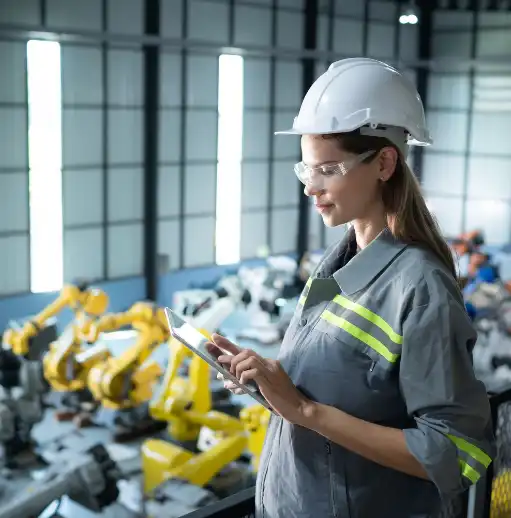In episode 162 of the Asset Champion podcast, host Mike Petrusky speaks with Lalit Agarwal, President and CEO of APPA: Leadership in Educational Facilities, the association supporting educational facilities professionals worldwide. Lalit brings over two decades of experience in facilities management, including leadership roles at the University of Nebraska-Lincoln and Energy CAP, an energy management and sustainability company. Mike asks Lalit about his career journey from an engineer to facilities manager to the CEO of APPA, where he is passionate about building business partnerships and professional development opportunities for the FM community. He shares how APPA is focusing on aligning its programs with the current needs of FM professionals while ensuring they stay relevant, especially in the face of rapid technological advancements and budgetary constraints. Lalit believes that facility management leaders must upskill and embrace AI as a tool to augment human capabilities rather than replace them by emphasizing that basic technological foundations are in place first. Mike and Lalit agree that curiosity and willingness to collaborate with others are essential for success in the complex and evolving world of facility management.
Agenda
- Discuss the current and future challenges in the facilities management (FM) industry
- Highlight the role of APA in supporting FM professionals
- Cover insights on the importance of curiosity, collaboration, and technology in achieving collective success
What you need to know: Facility and maintenance takeaways
Takeaway 1: Collaboration is essential for achieving collective success in the complex world of facilities management and asset maintenance
Lalit emphasizes the importance of collaboration and working together to tackle the challenges of modern FM. “Be curious, ask questions, try to reach out to people who you think they know better, or you admire their work,” he advises.
He stresses that “collective success requires us to work together,” highlighting the interconnected nature of the industry and the need for a community approach to problem-solving.
Lalit also reflects on his own journey, noting how his worldview expanded from a narrow focus on technical assets to a broader perspective that includes the human element. “When I started off my career in FM, my worldview was a little narrower. I started my life in a building automation system. And I saw my asset as the device controller, the thermostat in the building, in the space,” he shares.
Over time, his perspective evolved, and he came to see assets as “those that actually create an environment where humans can thrive,” underscoring the importance of creating spaces that support human activities and well-being.
Mike echoes his sentiments, stating that the show is about “developing those connections and relationships and encouraging and inspiring my listeners to be what I call an asset champion.” He emphasizes that the role of an asset champion goes beyond just caring for physical assets; it involves ensuring that the people who occupy the spaces have a safe and comfortable environment to work and live in.
Takeaway 2: APA is committed to staying relevant and aligned with the evolving needs of the industry through continuous program evaluation and in-person engagement
As the CEO of APA, Lalit is dedicated to ensuring that the organization remains relevant and responsive to the industry’s needs. He outlines two primary focuses: internal program evaluation and external engagement with members.
Internally, Lalit is making sure that APA’s programs are up-to-date and aligned with the industry’s demands. “We are making sure that we do an analysis of all our programs to make sure that they are aligned with the needs of the industry, and where they are not, we will be revising and revitalizing them,” he explains. This commitment to continuous improvement is crucial for maintaining APA’s impact and relevance in a rapidly changing field.
Externally, he is prioritizing direct communication with members to understand their needs and challenges. “I’m making myself available and going where the people are rather than expecting them to come to me,” he says, highlighting the importance of in-person interactions.
His approach is driven by the belief that face-to-face engagement is essential for building strong relationships and gathering valuable insights. “Having that in-person communication, having that handshake, that look in the eye and make sure that you hear from them, it’s immensely important to me,” he adds. This dual focus on internal and external alignment demonstrates APA’s commitment to serving its members and staying at the forefront of the industry.
Takeaway 3: Budgetary constraints and talent retention are significant challenges in facilities management, but AI and upskilling can help
Lalit identified budgetary constraints and talent retention as two of the most pressing challenges facing facilities managers today. “Budgetary constraints are one of the biggest challenges that many of the institutions that we have as APA members are facing,” he states.
He suggests that facilities managers should first focus on eliminating waste within their organizations to optimize their existing budgets. Once waste is minimized, the next step is to address the issue of recruitment and retention of skilled staff. “If you’ve already gone through and you have eliminated any kind of waste that may have existed in the organization, one of the biggest challenges you probably are also facing is recruitment and retention of skilled staff,” he notes.
Lalit also discusses the role of technology, particularly AI, in addressing these challenges. While he acknowledges that AI could replace some jobs in the future, he emphasizes that it would augment human capabilities rather than render them irrelevant.
“Just like calculators did not make math irrelevant, AI is not going to make humans irrelevant. AI will become a tool for us, humans, to use in future to do things more effectively,” he says. To effectively leverage AI, he recommends that facilities managers ensure they have a solid foundation of basic technologies in place, such as sensor data, work order data, and space management data. “AI is only useful if you have all the basic technologies of FM already in place because AI cannot do things if it doesn’t have the data,” he concludes. This advice underscores the importance of preparing for the future by investing in current technologies and upskilling the workforce.
Maintenance management insights
- APA plays a crucial role in professional development and benchmarking for FM professionals.
- The role of an FM practitioner should focus on creating environments where humans can thrive, not just maintaining physical assets.
- Budgetary constraints are a significant challenge for institutions, but they also provide an opportunity to identify and eliminate waste.
- Recruitment and retention of skilled staff are critical issues, and upskilling current staff can help address these challenges.
- AI is expected to augment human capabilities in FM, but it requires a strong foundation in existing technology and data management.
- Curiosity, asking questions, and reaching out to those with expertise are essential for professional growth and collective success.
Do a deep dive into more asset management insights by exploring all Asset Champion Podcast episodes.









